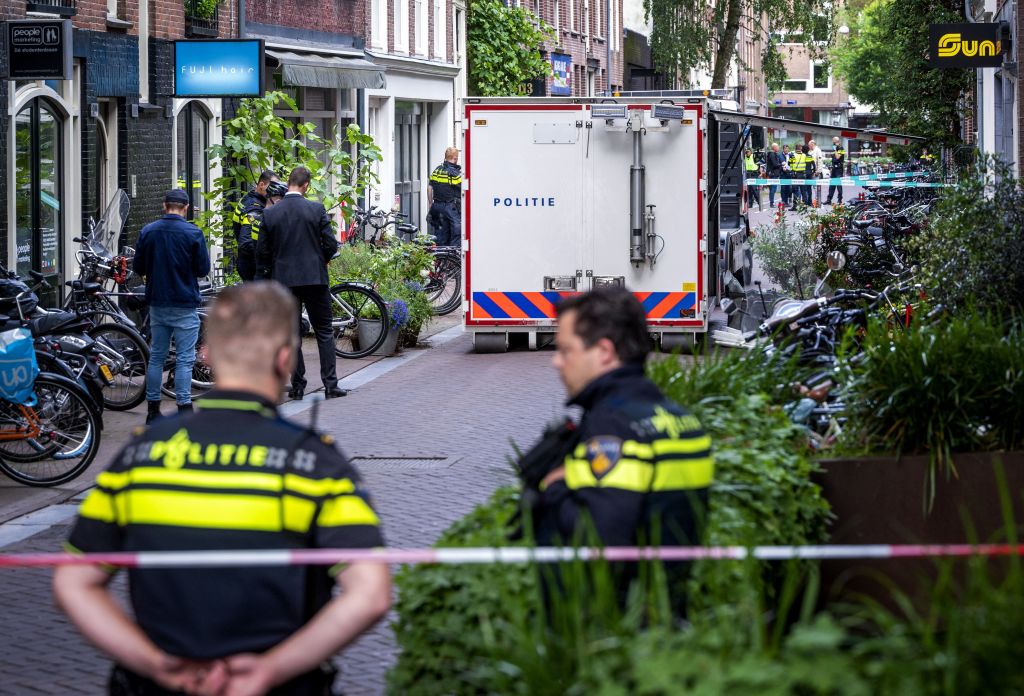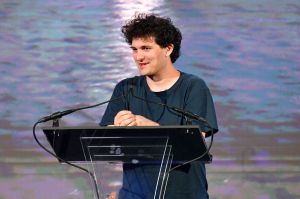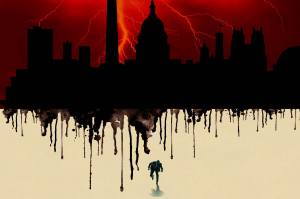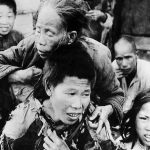In an attack that has rocked the Netherlands, a leading Dutch crime reporter is fighting for his life in hospital after being shot in broad daylight.
Last night, at around 7:30 p.m., the investigative crime journalist Peter R. De Vries was shot five times on a busy street in central Amsterdam after leaving a television studio where he was recording a talk-show.
The horror on the face of the Amsterdam mayor was visible at a hastily-organized 11 p.m. press conference to discuss the attack, while tributes for De Vries flooded in from everyone from Dutch king Willem-Alexander to caretaker Prime Minister Mark Rutte. Rutte called the shooting ‘an attack on the freedom of the press…appalling for our democracy, justice system and society’. And Ferd Grapperhaus, caretaker justice minister, condemned the many-headed monster of organized crime which he said was ‘becoming ever more violent and unscrupulous’.
After the attack police sprang into action and with the help of video footage from bystanders arrested a 35-year-old Polish man living in Gelderland and a 21-year-old from Rotterdam after a highway chase.
De Vries is a journalist with a high public profile who is known for his work exposing mobsters and reviving cold cases. Some have already linked the attempted hit to a high-profile murder and drug trafficking trial involving Ridouan Taghi, described by the Dubai Police chief as ‘one of the world’s most dangerous and wanted men’ when he was arrested there in 2019.
De Vries had been acting as an adviser to Nabil B, a witness in the heavily-secured trial against Taghi and 16 other men, who are accused of ordering several assassinations as part of a drug war between Dutch gangs — known as the ‘Mocro mafia’ because of their Moroccan and Dutch Caribbean heritage. Taghi denies all the charges.
Nabil B’s own brother was shot dead by a hitman in 2018 and his former lawyer was mowed down on his doorstep in Amsterdam in 2019. De Vries himself has regularly received death threats from the Netherlands’s most notorious criminals, including from Willem Holleeder, the man who kidnapped the drinks magnate Freddy Heineken in 1983. In 2019, Taghi denied reports that he had threatened to have De Vries killed.
Now De Vries’s shooting has raised wider questions about the state of the ‘rule of law’ in the Netherlands, which appears to be an excellent place for criminals to conduct business. There are regular drug busts of huge quantities of hard drugs in and around Rotterdam harbor, Europe’s largest sea port, and some say that international criminals have flocked to the Netherlands because of its moderate justice system, which prefers lighter punishments and rehabilitation to jail sentences.
The Dutch police union has raised concerns in the past that the country has ‘the characteristics of a narco-state’. Two years ago a report into drug-related criminal activity in Amsterdam described the situation as ‘out of control’ — although murders and manslaughters were at a 20-year low in 2019.
One of the report’s authors, Pieter Tops, told DutchNews.nl last year that ‘all the characteristics and features of our country that make it attractive for legal economic investment also make it attractive for illegal investment. We have strong infrastructure, not just our roads and ports, but our financial and digital infrastructure too.’
He also argued that the Dutch justice system was enticing criminals. ‘Our penal system. It is meant to counter criminals but, in this country, it attracts them. A 2018 study showed the Netherlands to have the lowest sentences for drugs offenses. Some criminals we’ve spoken to say this is a major attraction, often without us asking.’
Some experts worry that the de facto legalization of cannabis leads young men into criminality as well. ‘Coffeeshops’, where cannabis is sold and smoked, trade legally but the state turns a blind eye to the fact that they are supplied by illegal cannabis cultivation. This ‘grey area’ effectively encourages organized crime, according to the current Amsterdam mayor, Femke Halsema.
This morning, back on the Lange Leidsedwarsstraat where De Vries was attacked, local residents and camera crews were gathering around bunches of flowers, notes of support and burning candles. One can only hope that action is now taken to stamp out organized crime in the Netherlands. De Vries would be the first to say: ‘doing nothing is not an option’.
This article was originally published on The Spectator’s UK website.


















